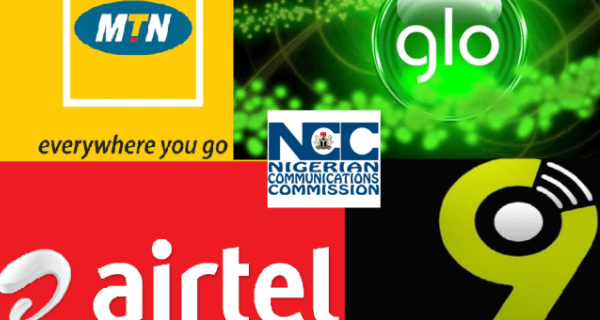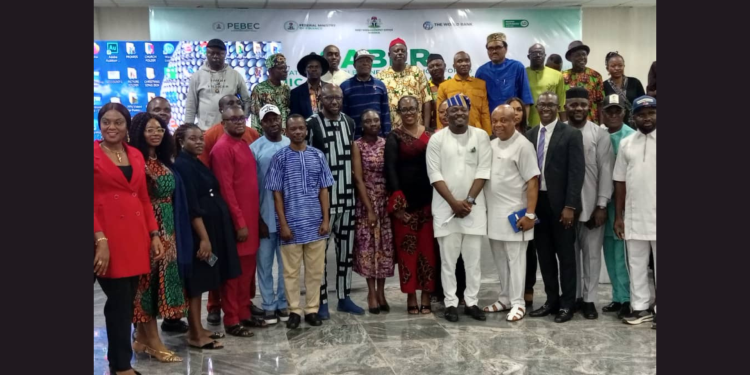Telecom
Poor QoS Persists 19 Years after GSM Revolution

It will be 19 years this August since the introduction of the Digital Mobile Communications services popularly referred to as GSM in Nigeria.

The acceptance and growth rate among the Nigerian populace has had serious and great latent of enhancing the communication.
Today, GSM phones beep in almost every palm, pocket, handbags, offices, parties, school hostels, beer parlors, every nook and cranny of the country.
Aside the availability of telephony, the revolution also ended the monopoly enjoyed by Nitel and introduced competition by the various operators.
Quality of service has not however kept pace with the burgeoning development in the telecom industry. It is much worse now than seven years ago when the revolution began.
There are still complaints of bills for undelivered messages, charge for dropped calls , which increase the revenues operators but leave deep holes in the pockets of subscribers
Equally, they complained that Internet service remained a challenge, just as much as uploading and downloading.
As a matter of fact, all the telecom operators exhibit grave deficiencies in their service delivery from small to dominant operators.
Deolu Ogunbanjo, president, National Association Telecommunications Subscribers of Nigeria (NATCOMMS), blamed poor quality of service on inadequate base stations in the country.
Ogunbanjo said that United Kingdom with population less than Nigeria has over 60, 000 base stations while base stations in Nigeria is still under 30,000.
He added that issues around ‘Right of Way’ approvals and closure of base stations by state government agencies have also impacted negatively on the quality of service being delivered by telecommunications operators.
“There is need for more stakeholders’ engagement between Nigerian Communications Commission (NCC), telecommunications operators and state governments to resolve socio-economic factors that are frustrating operators in deploying infrastructure for improved quality of service.
“Operators need to build more base stations to improve capacity of their network with digital radio equipment,” Ogunbanjo said.
In clear terms, operators lack capacity to meet the demand of subscribers and they have no apologies for that.
Operators blame high cost of doing business, rising insecurity and widespread cases of theft of their vital equipment and so on for worsening quality of service.
They also point at forced relocation of hundreds of kilometers of fibre optic cables as a result of road works as well as difficult access to sites and community relations troubles.
Myke Offili, general manager commercial, Coloplus, telecommunications collocation services provider, agreed that network congestion is responsible for the poor telecommunications services been experienced by subscribers as pressure is on the network at the same time.
He stressed the need for operators to expand their network through making available additional spectrum to them in line with ATCON position.
He urged government to address the high cost of deploying network infrastructure as well intensify effort in educating the public on the impact of technology contrary to on-going misinformation about certain technology at the market place.
Elsewhere, Oladipo Raji, group managing director, InfraFocus Technologies, attributed the poor network services to congestion of the network as a lot of people are accessing the network at the same time.
“This means that we don’t have adequate capacity on the network. Everywhere in the world there are always two networks mobile and fixed networks delivering mobile and fixed data services, but in Nigeria we have put the two networks together and into one operator through universal licensing regime where GSM operators delver mobile and fixed data from one network hence the congestion.
“If we had encouraged ISPs to deliver fixed data at home and offices while GSM operators deliver mobile data we would not have been in this situation. It is time for NCC to correct this mistake and segregate the market by licensing ISPs to deliver internet to homes and offices by this, jobs will be created as well,” he said.
Telecom
Anambra Deepens Digital Reforms, Eyes Top Ranking in Ease of Doing Business

From Angela Nwanodu
Anambra State has reaffirmed its commitment to building a tech-driven and business friendly environment.

The State Government led by His Excellency, Prof. Charles Chukwuma Soludo, CFR reiterated the commitment at the maiden State Action on Business Enabling Reforms (SABER) technical session and statewide town hall meeting on Tuesday, July 8, 2025, held at the International Conference Center, Awka.
The event formed part of the nationwide tour by the Presidential Enabling Business Environment Council (PEBEC), bringing federal reform champions face-to-face with state officials, private sector leaders, and the business community.
In his remarks, Governor Soludo who was represented by the Deputy Governor, Dr. Onyeka Ibezim, welcomed the PEBEC team and stakeholders, describing the session as timely and essential.
He stressed that Anambra’s business reforms are deliberate and data-driven, echoing Governor Charles Chukwuma Soludo CFR’s belief that “if you can’t measure it, you can’t improve it.”
Governor Soludo reaffirmed that although Anambra currently ranks 7th nationally and leads the South East on ease of doing business, the state views reforms as an ongoing, measurable process grounded in technology, planning, and accountability.
Princess Zahra Mustapha Audu, DG of PEBEC, in her goodwill remarks delivered via video, described the SABER programme, a $750 million World Bank-supported initiative, as a transformative partnership co-designed to help states implement global standards and create easier, more transparent business environments.
She stressed that while designing reforms matters, real impact comes from effectively implementing them, with states as the true engines of economic growth.
The State Commissioner for Budget and Economic Planning, Mrs. Chiamaka Nnake, in her opening remarks, emphasized that with over 98% of Anambra’s wealth held by the private sector, government reforms must be deliberate and responsive.
She noted that under Governor Soludo’s leadership, Anambra has remained intentional about ensuring businesses face fewer obstacles and enjoy a competitive edge.
During the technical session, PEBEC reform leaders Ohiemi Gabriel, Ifeanyi Icheke, and Oluwatofunmi Odunladi commended Anambra’s reform champions for their consistent efforts in reporting, as well as the state government’s resolve which earned the state 7th place nationally and first in the South East in 2021 and 2023.
They encouraged Anambra to deepen its reforms ahead of the next ranking in December 2025, which will spotlight top-performing states and most improved states, alongside tailored recommendations for investors.
The highlight of the event was the panel discussion and town hall meeting anchored by the PEBEC team, featuring members of the State Executive Council as panelists, including the MD/CEO of the Anambra State ICT Agency, Chukwuemeka Fred Agbata, CFA; Commissioners for Industry, Lands, Power and Water Resources; MD of ANSIPPA; and MD of ASBA.
During this session, panelists discussed how technology is central to Anambra’s reform agenda. They spotlighted initiatives like the ANAMGIS (Anambra Geographic Information System), which digitizes land processes; the Grievance Redress Mechanism that swiftly addresses investor concerns; the adoption of the .anambrastate.gov.ng domain to standardize official digital communications and strengthen trust in government services; and the ongoing expansion of fiber ducts to enable 5G connectivity, all reflecting the administration’s “Everything Technology, Technology Everywhere” vision.
The conversation also highlighted Solution Lens, a civic engagement platform designed to deepen citizen participation and transparency by allowing residents to track and report on government projects across the state.
Together with strategic projects like road constructions which are deliberate efforts by Governor Soludo to inter- connect Anambra State for easy moving round in doing business.
These reforms aim to enhance transparency, and position Anambra as a smarter, investor-friendly state
As Anambra prepares for the next PEBEC evaluation, government and stakeholders reiterated their resolve to keep reforms measurable, digital-led, and investor-focused
With technology and intentional governance at its heart, Anambra State is strengthening its position as a modern hub where businesses can invest, scale, and thrive.
Telecom
MTN’s Karl Toriola and Business Leaders Champion Corporate Climate Reform

In a defining step toward sustainable transformation, Nigeria has officially joined the global Climate Governance Initiative (CGI), a platform empowering corporate board members to take decisive climate action.

Evoto
The initiative’s virtual launch drew a dynamic mix of leaders—former ambassadors, government officials, business executives, and climate advocates from across Africa and beyond.
Dr. Myma Belo-Osagie, Chair of the CGI Nigeria Advisory Board, welcomed attendees with a call to reimagine corporate leadership: climate risks, she noted, should no longer be treated as external issues—they must be integrated into strategic decision-making. She pointed to green finance, regenerative agriculture, and circular business models as key areas of opportunity.
Echoing that sentiment, MTN Nigeria CEO, Dr. Karl Toriola, warned that climate challenges already influence everything from access to capital to long-term competitiveness. “Climate risk directly affects our bottom line. It’s no longer optional to care—it’s necessary,” he said.
Toriola detailed how MTN has embedded climate governance at the core of its operations. From energy-efficient innovations like solar-powered towers and motion-sensor lighting to a nationwide battery and device recycling program, MTN is actively reducing its environmental footprint. Crucially, all executive performance indicators now include sustainability goals—with incentives tied to measurable impact.
He didn’t shy away from the hard truth: genuine climate progress will require sacrifice. “You can’t make an omelet without breaking eggs,” he said, urging corporate leaders to prioritize climate resilience even when it’s inconvenient or costly.
As CGI Nigeria joins a growing global network of corporate climate advocates, the message is clear—business leadership must go beyond profit to steward environmental accountability. From the boardroom to rural infrastructure, Nigeria’s private sector has a pivotal role in shaping a more sustainable future.
Telecom
Save & Win: FCMB Promo Makes 12 Millionaires, Over 3,000 Winners

First City Monument Bank (FCMB) has rewarded 3,016 customers in Season 10 of its ongoing Millionaire Promo. So far, 12 customers have won the top prize of ₦1 million each, while 3,004 others have received different cash rewards.

The winners were selected through electronic draws held between January and June, ensuring broad participation. The promo is open to new and existing savings account holders and ends in September.
During the fifth draw held on June 17, four additional customers won the star prize of ₦1 million each, with 112 others also receiving cash prizes. The latest millionaires include Ranti Badmos from Lagos, Wilson Onoezikome in Kaduna, Esther Obafemi in Ijebu-Ode, Ogun State, and Israel Oruma in Asaba, Delta State.
Israel Oruma, a timber merchant, expressed his delight at winning, saying the prize would significantly support his business.
“This is a pleasant surprise. I have been facing financial challenges recently. The ₦1 million will go a long way in assisting me. I’m investing it in my business and will encourage all my staff, family, and friends to open an account with the Bank. Thank you, FCMB.”
Adetunji Lamidi, Divisional Head of Personal Banking at FCMB, said the Millionaire Promo reflects the bank’s broader mission to enable financial security and opportunity for everyday Nigerians.
“At a time when many are facing economic pressure, savings-driven initiatives like this shift the focus from getting by to making progress. It gives people a reason to save, rewards loyalty, and shows that banking helps create real-life impact.”
Speaking on the integrity of the selection process, Oyinkan Kusamotu, Principal Legal Officer at the Lagos State Lottery and Gaming Authority, stated: “It’s great to witness FCMB’s commitment to compliance, fairness, and transparency throughout the draw process, which builds trust with customers and stakeholders.”
To qualify for Season 10 of the FCMB Millionaire Promo, customers must increase their account balance by at least ₦10,000 and maintain it for 30 days to enter the monthly and seasonal draws. Each additional ₦10,000 saved increases the customer’s chances of winning. Dormant or inactive account holders can also participate by reactivating their accounts. Draws are held nationwide, giving everyone a fair opportunity to win.

 Telecom3 days ago
Telecom3 days agoNCC Wins Global ICT Award for Digital Awareness in Schools

 Broadcasting2 days ago
Broadcasting2 days agoEFCC Re-Arraigns Echefu, TStv CEO for Allegedly Defrauding Ex-Minister of N1Bn, $1.3m

 Broadcasting3 days ago
Broadcasting3 days agoMore Woes for MultiChoice as Ghana Orders 30% Price Cut

 News3 days ago
News3 days agoNnamani, CEO Digital Realty Nigeria Bags Digital Economy Icon of the Year @ Digital Innovation Awards in Ghana

 News3 days ago
News3 days agoFG Says No Going Back to Nuclear Testing

 E-Financial3 days ago
E-Financial3 days agoAscensia Finance Commences Operations in Abuja

 News3 days ago
News3 days agoDICON, Saudi Firm to Produce Drones, Satellites in Nigeria

 Telecom2 days ago
Telecom2 days ago4 Dead, 20 Others Injured as Fire Engulfs Cairo Data Centre

























